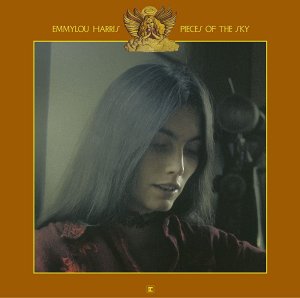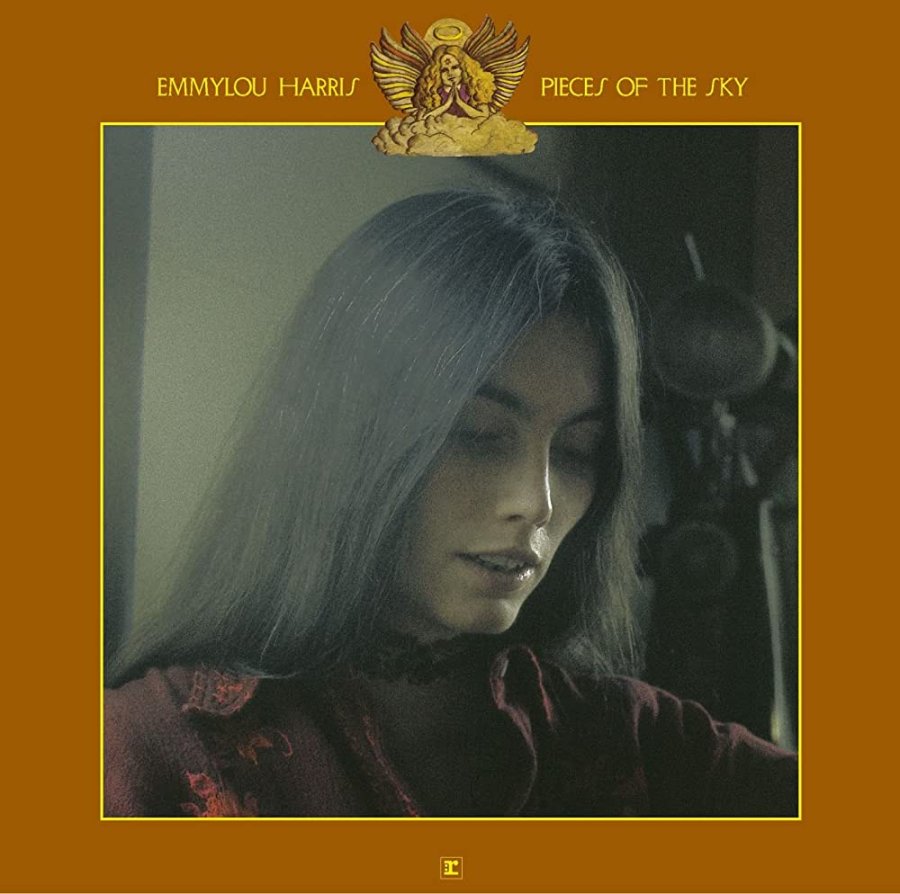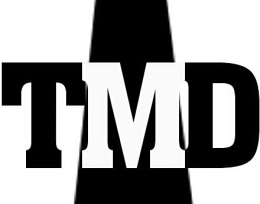In our last edition of this series, we revisited the early stages of outlaw country – arguably the catalyst for the movement itself – with Waylon Jennings’ Honky Tonk Heroes. As we move forward through this series and we start to see the album concept more fully realized in country music, we’ll start to see a more even split between albums that tell the country music story and ones that stand as personal artistic statements. This next album, despite featuring only one writing credit from the artist in question, stands, in a sense, as both. And it just so happens to be another album to change country music from the outside in, for the better. Onward!

Country music didn’t claim her first, nor did she claim country music as her first original musical love. But without Emmylou Harris the country music story would feel largely incomplete, as if we’d be missing one of the most important chapters in the entire book, or missing the thread that ties it all together. Granted, tracing her history is a rich exercise I’ve already embarked on once before, but every journey has a beginning. For Harris, it was Pieces of the Sky.
Well, in a sense. The artist who quit college and moved to New York City in the late ‘60s was actually swept up in the folk revival of the time, and played clubs and met other up-and-coming artists like Jerry Jeff Walker. And before she made her mark on country music, she signed with the small label Jubilee in 1970 and recorded a collection of folksongs called Gliding Bird … which she’s now disowned. The unlikely link between her and country music came courtesy of other artists looking on the outside in, first through Chris Hillman, after he heard her sing in a local club, and then through Gram Parsons, who, along with Hillman, Kenny Wertz, and Rick Roberts, comprised the Flying Burrito Brothers.
Parsons’ own history is another fascinating one I’ve dug into before (and not alone), but the main takeaway for this particular piece is this: Country music didn’t love Parsons, but Parsons loved country music, and it was through him that Harris gained an appreciation for a genre of music she initially didn’t care for, outside of Johnny Cash. And that education wasn’t just courtesy of the big hit-makers of the time. Parsons knew his history, and showed Harris the magic of the melodies penned by Felice and Boudleaux Bryant and the tight harmonies of the Louvin Brothers, among others. The key takeaway in turn, however, is twofold: Harris wouldn’t have become a country music legend without Parsons, and Parsons’ own solo records wouldn’t have been the marvels they’d become without Harris’ harmonies. Her angelic tone perfectly complemented his own warm but rough tone.
Tragically, he died in 1973 from a drug overdose, leaving Harris standing on her own in a world she was just discovering. She eventually negotiated a contract with Parsons’ old label, Reprise, and recorded her first official studio album: the first piece of a discography that spans country music history in nearly all of its rich entirety- the first piece of the sky, if you will.
Of course, like with Honky Tonk Heroes last week, Pieces of the Sky is a tough album to outright review rather than praise for its accomplishments, even if it’s held up remarkably well as a great listen in its own right. The trick with Harris’ material is that it’s a strong showcase for historical preservation – not in a strictly academic sense of the word, but more so in a realistic sense from someone continuously learning and discovering new threads of her own and sharing them with us. In a way, that’s as important as any other album we’ll discuss through this feature, if not more so, and even if that importance is more subtle and underappreciated. She may not have written many songs herself, but there are very few songs that Harris didn’t make her own. So while I may personally prefer tighter albums like Elite Hotel and Quarter Moon in a Ten Cent Town for their sense of greater refinement, Pieces of the Sky still carries its own magical magnetism that’s bone-deep in its richness and potency.
Let’s make one thing clear, though: Harris’ records aren’t tribute records. Those are made to honor past sounds and artists past their prime. Harris aimed to make each song her own, to update them for the modern age while honoring their origin points. At her worst, she still introduced older gems to new audiences. At her best, she unearthed a new nugget of insight that was there but never truly appreciated. It’s one reason among many why I love this album’s wide-open atmosphere and sense of spontaneity. It’s clear, timeless, and never stuffy – a raw edge tempered both by Harris’ tone and how much warmth bleeds through in the instrumentation itself. Remember, country music in 1975 was caught in a weird place between outlaw country and crossover pop-country, so this is outlaw in its own way, eschewing any sense of flashiness for just remarkably tight musicianship across the board, starting with the wily rambunctious acoustic groove-driven “Bluebird Wine” playing opposite the fiddle for a galloping end that suggests she’s hit her boozy stride described, indeed.
In a way, it’s a weird album to describe as a collective whole, because unlike other albums I’ve covered where there’s a thematic core to point back to, here, the connective tissue resides in the choice of the song selections themselves; metatext, if you will. So if the question is whether the clear production and Harris’ achingly angelic tone is enough to pull it all together … well, yeah, of course, because it’s her own journey we’re witnessing. So you don’t just get obvious choices by the most popular artists of the time. She unearths hidden and/or forgotten gems and puts her own stamp on them, like the aforementioned “Bluebird Wine,” an early cut from then-unknown singer-songwriter Rodney Crowell. Or take how she turns The Beatles’ “For No One,” of all things, into something much darker off of the touches of piano and dobro, begging a friend not to throw their heart away to someone who will crush it with a sense of desperate urgency. Equally sad is the achingly haunting, drawn-out sorrow of the Everly Brothers’ “Sleepless Nights” especially off those fantastic harmonies that actually add weight to the core of the lyric. Harris takes commercial recordings and digs at the true artistry waiting at the core, revealing an aching vulnerability that other artists may not be able to express, at least not as effectively.
Granted, that’s not to say this album isn’t also balanced out by a few oddball covers. Not to say her take on “Coat of Many Colors” isn’t good, but given Harris’ own background and the personal attachment to Dolly Parton that really just can’t be replicated, it does feel a tad out of place, important as it may be to the album’s spirit. And I’d also say her take on Merle Haggard’s “Bottle Let Me Down” is a tad too sleepy and loses the rambunctious desperation that makes the original so iconic (though this was still an era in which artists recording covers of popular hits of the time was common practice, to be fair). And if I’m being honest, while there is a pretty uniform quality to this album, it’s also one that I’d say is bolstered most by certain individual centerpieces. First through “Bluebird Wine,” then through the elegant harmonies that characterize “If I Could Only Win Your Love” that not only do justice to the Louvin Brothers original, but also to Harris’ own background and how much further she had come in refining that craft.
But in terms of tributes to her past, all roads lead to “Boulder to Birmingham,” the lone cut that Harris did write in tribute to Parsons, which opens with a Tom T. Hall-esque, conversational storytelling detail of being on an airplane just to fly and find a temporary escape, even if peace is beyond her – potentially see her old friend’s face in one of those pieces of the sky, in other words. It shifts to more nature-based imagery – nightmares of the mind that haunt her the way they do us all in grief – but the cutting realism is always there, right down to the line where she says the hardest part is that she’ll survive, furthering her journey in a way her friend and mentor will never get to see for himself. It’s the one song here that aims big in its booming crescendo and feels earned, letting all that grief soar through the sky as needed, and allow for some form of catharsis.
It’s one of my favorite country songs of all time, but I also think it’s bolstered by what follows, the underrated “Before Believing,” another not-so-obvious cut, courtesy of songwriter Danny Flowers. In contrast to that echoing high of what comes before it, this is more settled, still just as twinkling in its textures and beautiful through its liquid acoustic plucks and soft touches of pedal steel and piano, but also more desperate and helpless. It’s a counterbalance where the darkness is inescapable, as artful as country music gets in its poetry, where those pieces of the sky are falling down and the loneliness is stark and direct. It’s a one-two punch that guts me every time, especially when the pain comes across so crystal clear.
Elsewhere, while there are a few out-of-place cuts (it’s always good to hear a Shel Silverstein cut, but “Queen of the Silver Dollar” ends this grounded album on an oddly lighter, weirder note), this is the first step in one of country music’s richest discographies. It’s an album where the talent is self-evident but the real nuggets of gold that strengthen it are worth the deeper-dive, if only to appreciate it to its fullest abilities, and to see why Harris appreciates country music with a scholar’s wit and a true artist’s heart. She pulled those pieces of the sky together in her own way, whether said pieces represent her own lonely heartbreak, the country music fabric, the beautiful wide-open spaciousness of her sound or all of the above. Either way, it’s a sky I’ll gladly soar through anytime.
Of course, from settled poignancy and beauty we’re going to turn something a little more, well, explosive. So join me next time, where we’ll discuss Tanya Tucker and TNT.


I really love this album. I went through a huge Emmylou Harris phase and still love her music and albums and think the term “Angelic” is appropriate to describe her voice. I’m torn on which record I love the most but i’m really glad you pointed out “Before Believing” IDK what that song does to me but it’s kinda like being hypnotized (Entranced). The lyrics, Emmy’s singing and the atmosphere of the song always capture me. I always rated this album as 5 stars but after reading the review I would agree that the Emmylou’s takes on “Coat of Many Colors” and “The Bottle Let Me Down” bring it down a little as they aren’t as great as the Originals. Even back then those songs were well known standards for Dolly and Merle.
LikeLiked by 1 person
I agree; you can’t go wrong with pretty much anything of hers. I’m not sure of an all-time favorite either!
But hey, all of this stuff is subjective anyway, so if it feels right, I’d say Pieces of the Sky definitely earns 5 stars.
LikeLike
Always a fan of her. I saw her play in Austin back in 73,or maybe 72 at a small club on south Congress. Her and a guitar. I hadn’t heard of her at that time, but we soon knew who she was. I had that album, but it went south with many of my good ones when the box was stolen. She is still a captivating songstress. Gram Parsons, what a fool, think of the music those two could have made.
LikeLiked by 1 person
A great read on Emmylou and a very listenable album. But then everything she makes is listenable. I do love BTB and it’s all the more poignant when you put it with the real life tragedy that was Gram Parsons. Maybe CofMC came more from her friendship with Dolly rather than an artist decision, still as you point out a decent effort. Really love your effort and insight on reviewing these albums.
LikeLiked by 1 person
“Everything she makes is listenable.” You said it! Good point on COFMC, too. Didn’t consider that! But thanks for the kind words, Randy – very much appreciated! 😄👍
LikeLiked by 1 person
Dolly returned the favor and recorded “Boulder to Birmingham” on a later album as well. If i’m not mistaken I believe Dolly Parton was Emmylou’s idol and respected her singing and the fact the she wrote a lot of her songs.
LikeLiked by 1 person
I love this album – it’s one of my favourites of hers. Emmylou Harris is one of the best interpreters of songs in that she can make almost any cover song her own. (Two notable exceptions are, of course, Coat of Many Colors and The Bottle Let Me Down, as these are and will always be immediately recognizable as Dolly Parton and Merle Haggard songs, but I do really enjoy Harris’ versions as well).
I’ve only ever listened to this album on Spotify, so I wasn’t aware that “Hank and Lefty” and “California Cottonfields” weren’t part of the original album until just now. I really enjoy both of these songs as well. (On another note, I wish Spotify would include both the original album and the reissued version as I tend to prefer to experience the album as originally issued. Spotify tends to only include the reissued versions).
LikeLiked by 1 person
Yeah, I always have to check the originals versus the reissues and find it weird as well. The only reason I cover the former is establish more proper context, but the reissues are always fun to dive into further!
LikeLike